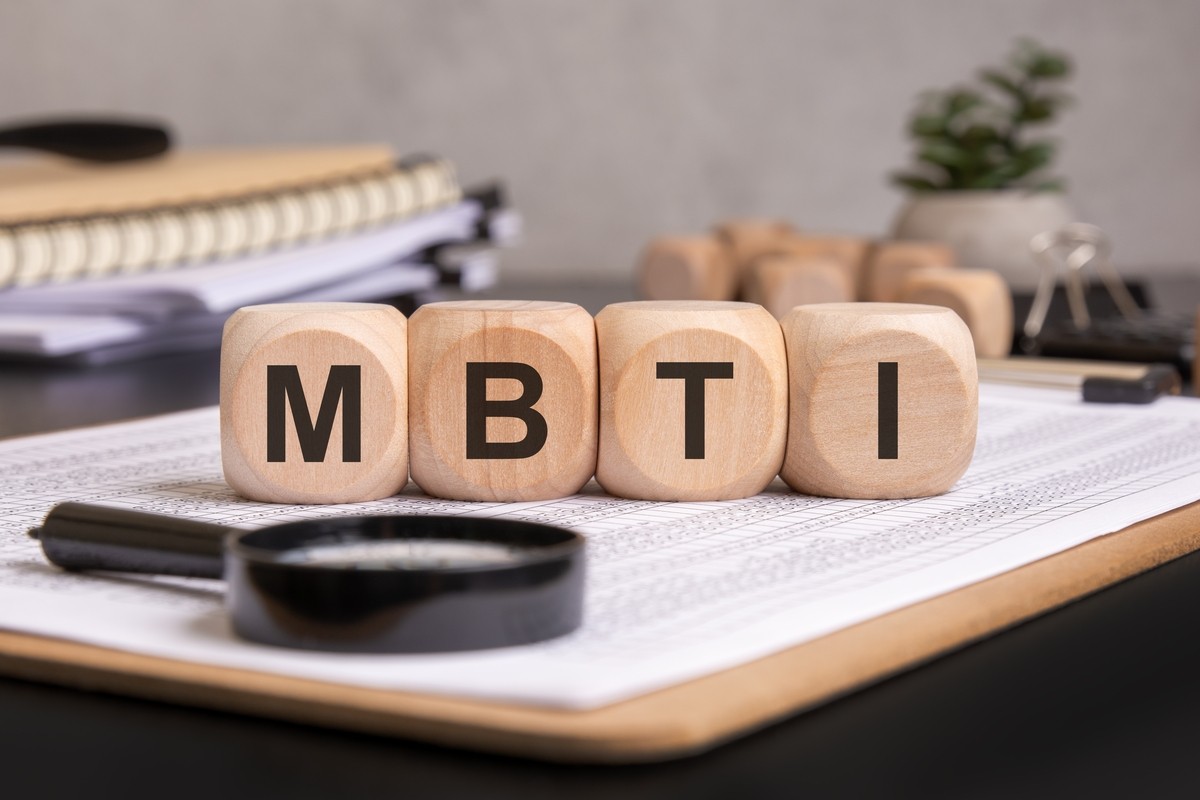
MBTI (Myers-Briggs Type Indicator) is a tool that categorizes people’s personalities and behavioral tendencies into 16 types. It was originally developed by Katharine Cook Briggs and her daughter Isabel Briggs Myers, based on Carl Jung’s theory of psychological types. Today, it’s widely used in Japan—especially among young people—for everything from job hunting and employee development to relationships and self-discovery.
In this article, we’ll introduce the four MBTI indicators, explore which types are common or rare in Japan, and share examples of how it’s used in various fields. If you’re looking to deepen your understanding of MBTI, be sure to read through to the end.
*By purchasing or reserving products introduced in this article, a portion of the sales may be returned to FUN! JAPAN.
The Four Core Categories of MBTI
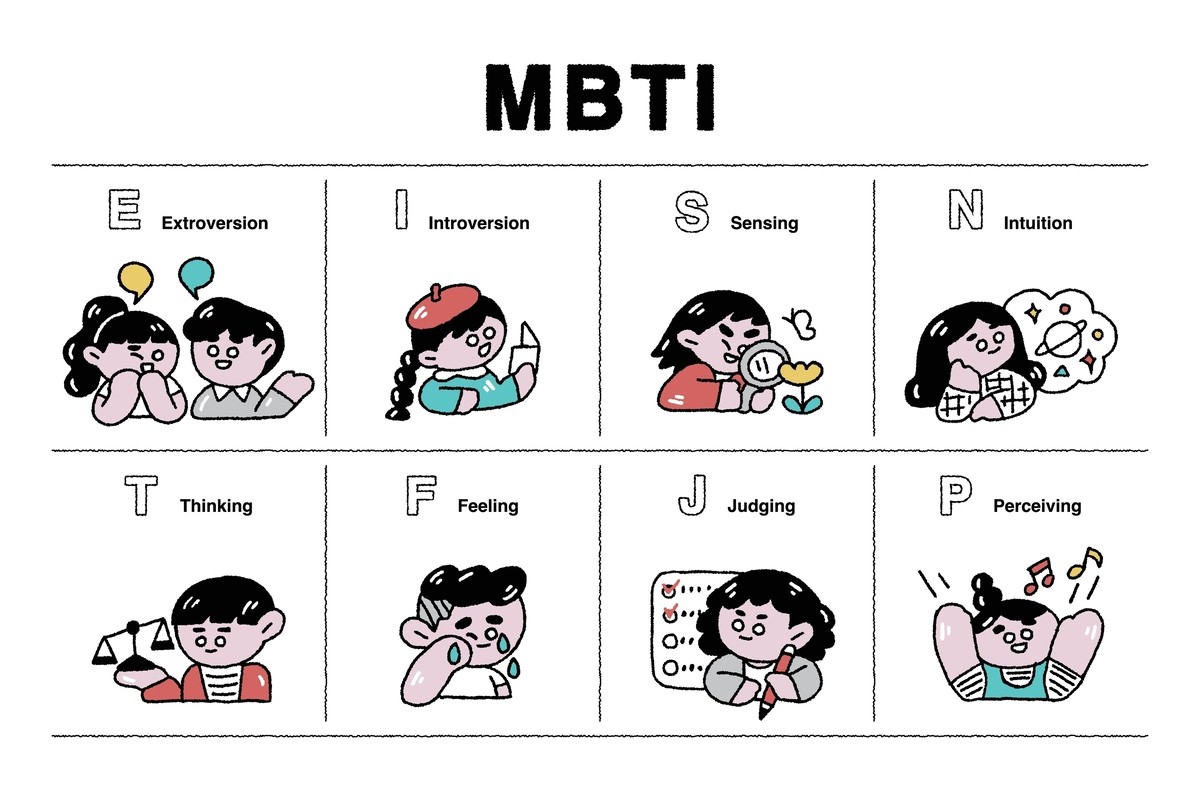
MBTI consists of four categories, each with two possible traits. The combination of these traits results in 16 personality types.
Direction of interest: Extraversion (E) / Introversion (I)
This indicator shows where you get your energy from. Extraverts gain energy from interacting with others and engaging with the outside world, while introverts recharge by spending time alone and focusing on their inner world.
How you perceive the world: Sensing (S) / Intuition (N)
This relates to how you gather information. People with the Sensing trait prefer realistic, concrete information and rely on their five senses to make judgments. Those with the Intuition trait are more future-focused and value abstract information, often relying on intuition and insight.
How you make decisions: Thinking (T) / Feeling (F)
This indicates what you prioritize when making decisions. Thinking types value logic and objectivity, while Feeling types prioritize relationships and harmony.
How you approach the outside world: Judging (J) / Perceiving (P)
This refers to your attitude toward planning and decision-making. Judging types prefer structure and like to follow plans, while Perceiving types are flexible, spontaneous, and prefer to go with the flow rather than sticking to rules.
Additional MBTI traits: Assertive (A) / Turbulent (T)
In recent years, supplementary indicators—Assertive and Turbulent—have also been used alongside the traditional 16 types. Assertive types tend to have high self-esteem and cope well with stress. Turbulent types are more prone to anxiety and self-reflection, but they are also growth-oriented and motivated to improve. These additional traits help provide more detailed insights, even among people with the same MBTI type.
Is MBTI the Same as 16Personalities?
While both MBTI and 16Personalities divide personalities into 16 types, MBTI is a formal psychological assessment based on Jungian theory, often used for self-understanding or counseling. In contrast, 16Personalities is a free online test that builds on MBTI but is based on the Big Five theory. It’s designed to be more accessible and is widely shared on social media.
Top 3 Most Common MBTI Types in Japan
According to MBTI data collected in Japan, the following three types are the most common:
*The rankings listed in this article are based on information available at the time of publication.
No. 1: INFP ("Mediator") -T
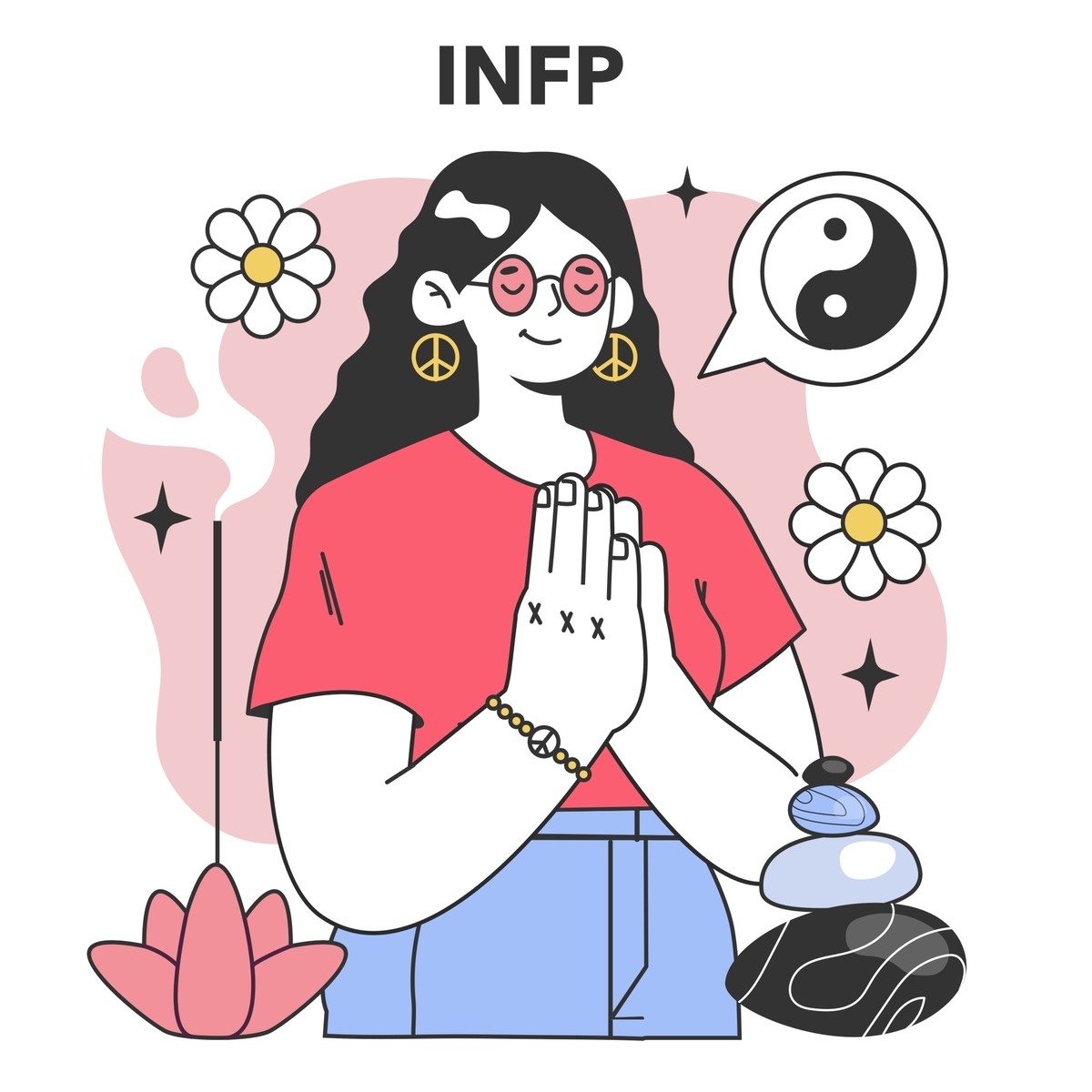
INFP-T (Introverted, Intuitive, Feeling, Perceiving, Turbulent) types are idealistic, sensitive, and value their personal beliefs deeply. In Japan, where a "delicate and socially aware culture" is valued, this type is particularly common. INFPs tend to focus on their rich inner world and often avoid standing out, but many excel in artistic and creative fields.
No. 2: ENFP ("Campaigner") -T/A
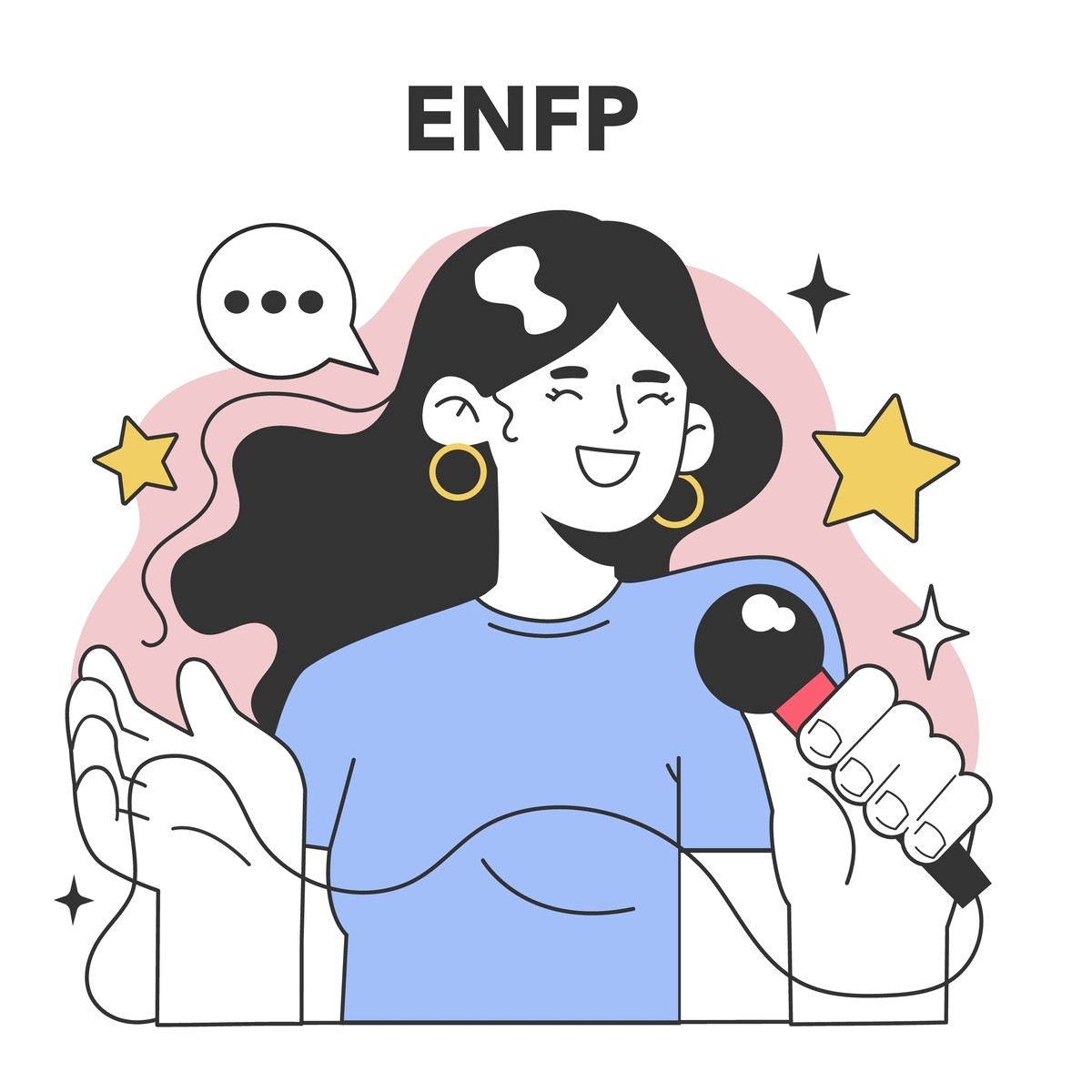
ENFPs (Extraverted, Intuitive, Feeling, Perceiving) are cheerful, outgoing, and highly curious. The T type tends to be sensitive and emotionally variable, while the A type is confident and optimistic. ENFPs value connections with others and attract people with their free-thinking ideas. With strong communication skills and the ability to express themselves openly, they are well-suited for roles like influencers.
No. 3: INFJ ("Advocate") -T
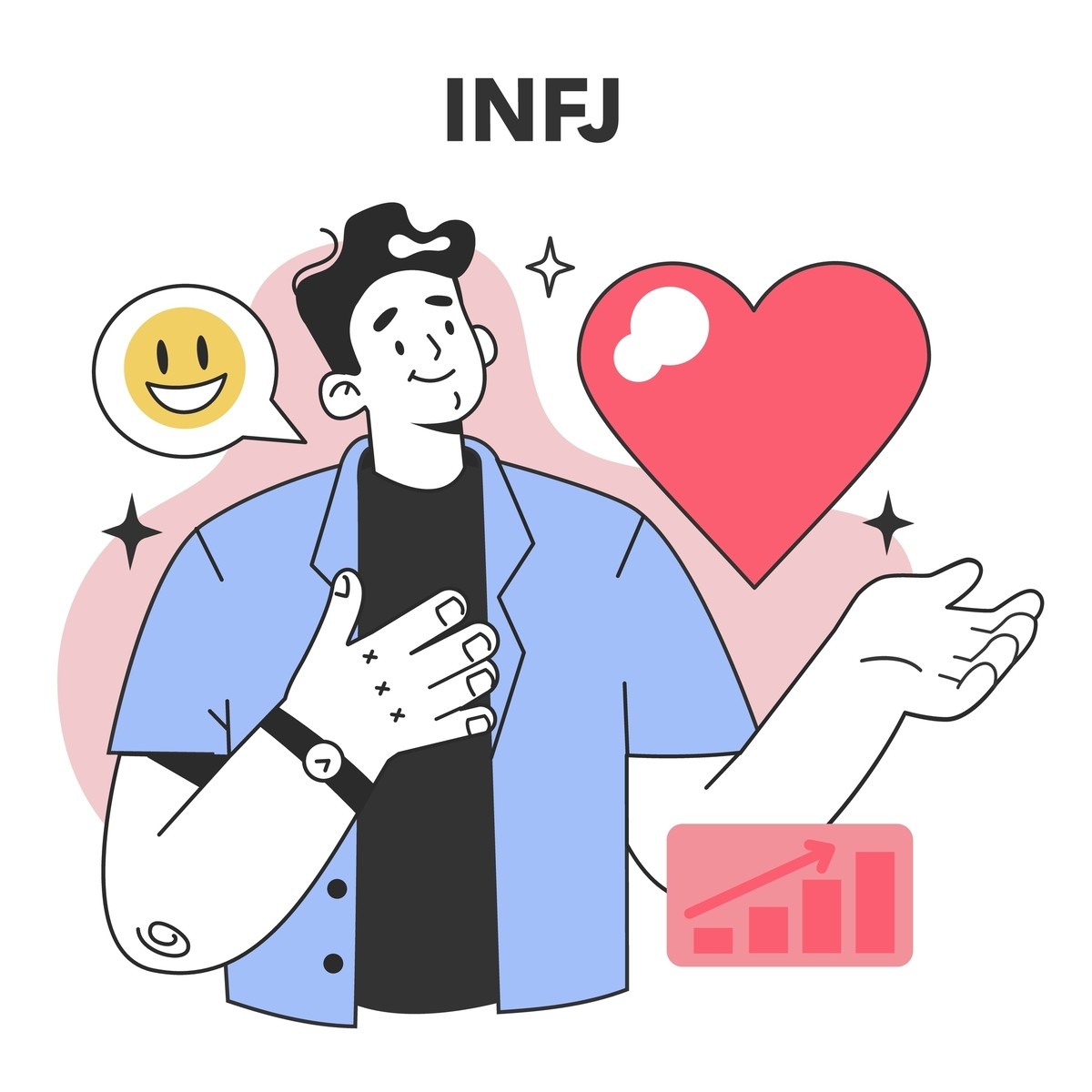
INFJ (Introverted, Intuitive, Feeling, Judging) types are quiet leaders who pursue their ideals. Although considered rare globally, they are relatively common in Japan. INFJs are sensitive to others’ emotions and tend to dedicate themselves to helping people, while also acting based on their own values and quietly burning with passion.
In Japan, where harmony and social awareness are highly valued, INFJ traits are often appreciated, and individuals who avoid asserting themselves may be more likely to be categorized as INFJ, contributing to their higher numbers.
Top 3 Rarest MBTI Types in Japan
On the other hand, the following MBTI types are considered relatively rare in Japan.
*The rankings shown in this article reflect the data as of the time of publication.
No. 1: ESTJ ("Executive") -T
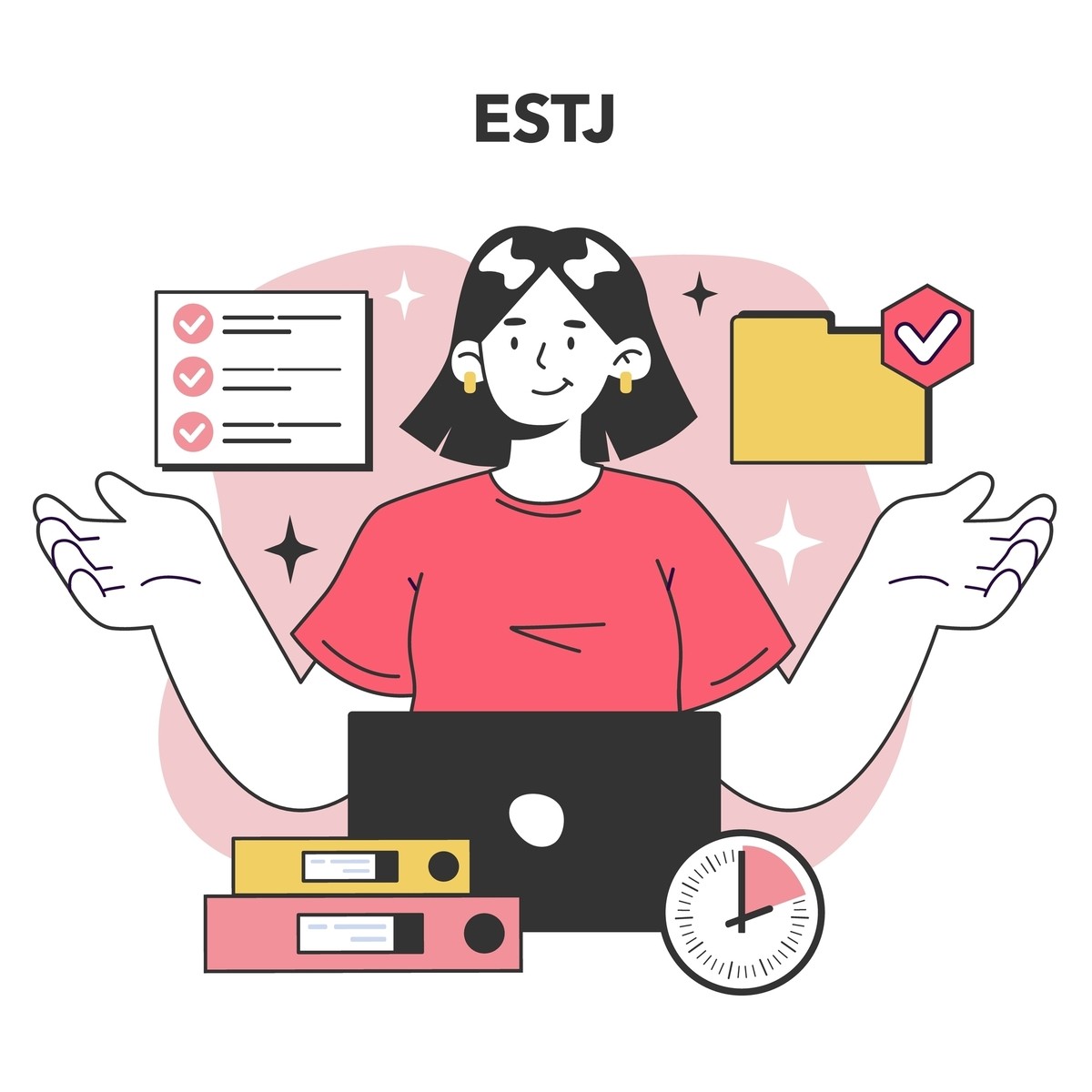
ESTJ (Extraverted, Sensing, Thinking, Judging) types are practical, organized, and responsible. They value order and rules, showing strong leadership and prioritizing efficiency and results. However, they can be inflexible at times, and because Japanese culture places importance on harmony and humility, the assertive nature of ESTJs can be suppressed and difficult to express.
No. 2: ESTP ("Entrepreneur") -T
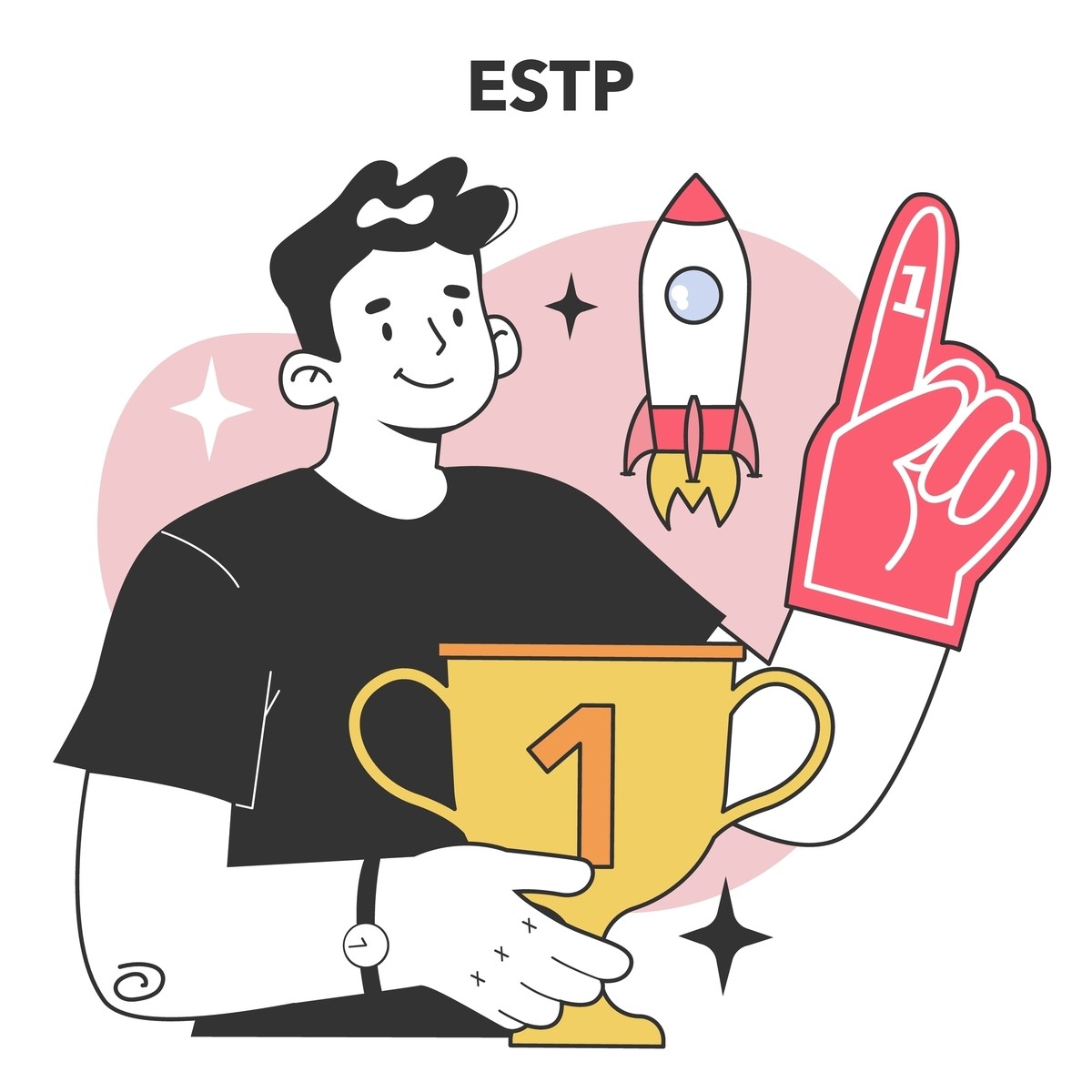
ESTP (Extraverted, Sensing, Thinking, Perceiving) types are action-oriented, sociable, and drawn to excitement and change. They have a sharp sense of reality and quick reflexes, allowing them to adapt well to sudden changes. They're unafraid of risks and have the energy to take on new challenges. However, they may lack planning skills and caution, making them less suited for jobs that require concentration or meticulousness.
No. 3: ENTJ ("Commander") -T
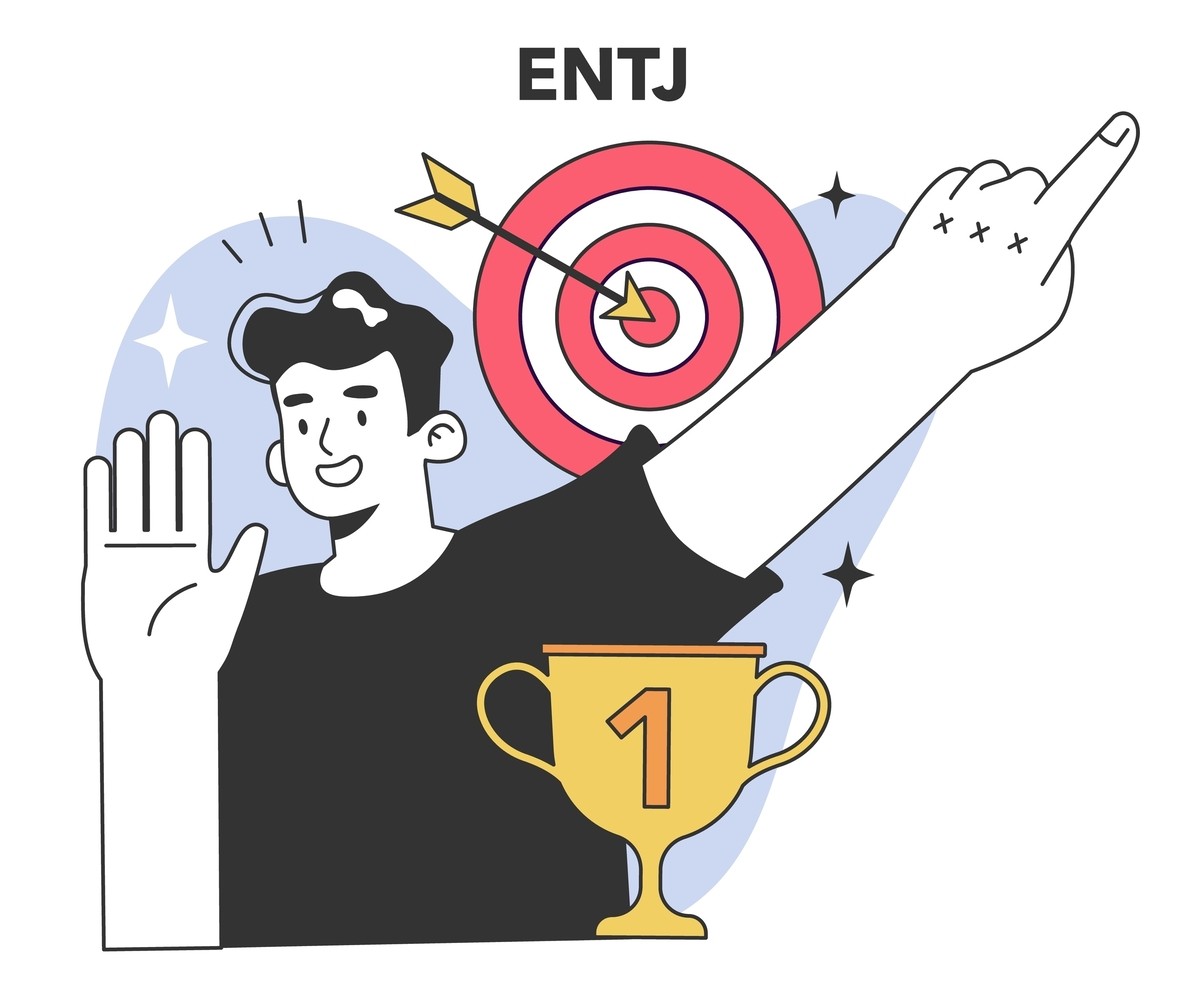
ENTJ (Extraverted, Intuitive, Thinking, Judging) types are confident, natural-born leaders. They have a strong drive to achieve goals and use strategic thinking to bring others together and make things happen. They're decisive and excel at making judgments based on logical analysis. However, their direct communication style can sometimes be seen as too blunt or critical, and in Japanese society, these traits may be unwelcome, making them one of the rarer types.
Endless Possibilities! How MBTI is Being Used in Real-Life Settings

MBTI isn't just for understanding your own personality—it’s also being widely adopted in corporate environments and various services.
MARUI Group: Using MBTI for Management
MARUI Group, known for running the "Marui" fashion buildings, has introduced MBTI personality assessments as part of management training. Aimed at fostering self-awareness and growth among board members and auditors (including external members), the program was conducted in a workshop format. It not only helped individuals understand themselves better but also highlighted the diversity within the executive team. By identifying each person’s strengths and weaknesses, the initiative aims to clarify personal roles and improve relationships with others, ultimately enhancing the overall management structure.
Participants noted that MBTI helped them "rediscover their own traits" and better "understand the differences in others," suggesting that the tool is useful in promoting diversity within the organization.
Dating Apps: MBTI as a New Matching Factor
Some dating apps are now incorporating MBTI features, using personality compatibility as part of the matching process. Unlike traditional approaches that focus on "appearance" or "hobbies," MBTI-based matching increases the chances of meeting someone with similar values. This feature has become especially popular among Gen Z users.
MBTI Awareness: Over 40% of Gen Z Have Taken the Test!
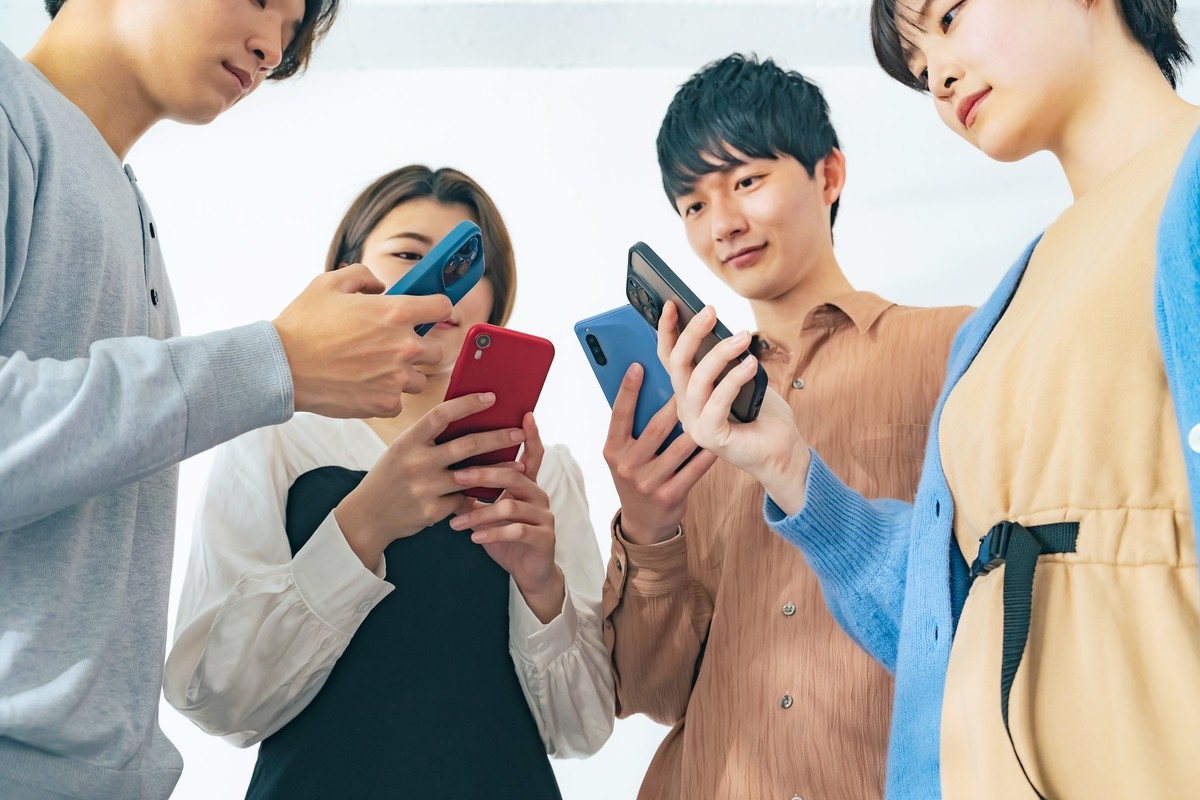
According to a survey conducted in September 2024 by MERY Inc., which regularly researches Gen Z trends, 41.3% of Gen Z women (born in the late 1990s to 2010s) have taken the MBTI test. In contrast, the figure for women in their 30s and 40s is about half that.
What’s more, over 60% of Gen Z respondents said they know not only their own MBTI type but also the types of their friends and acquaintances. This indicates that MBTI is becoming a kind of "shared language" among young people.
In schools, clubs, and other communities, MBTI is often used as a conversation starter, helping to deepen mutual understanding.
👉 【Qoo10】Buy mumchit MBTI Layered Perfume
👉 【Qoo10】Buy 16PF MBTI Fragrance
👉 【Qoo10】Buy Almost Blue MBTI Necklace
👉 【Qoo10】Buy MBTI 16 Personality Coffee Tumbler
What Is MBTI Harassment?

As MBTI grows in popularity, certain issues have started to emerge—one of the most talked-about is what's known as "MBTI harassment."
Discomfort with Being Categorized
MBTI can be a powerful tool for self-awareness and understanding others, but not everyone is comfortable being labeled. Some people feel uneasy when they’re judged solely based on their MBTI type. For example, saying something like “You’re an INFP, so you must be like this” can be seen as ignoring the complexity and uniqueness of the individual.
Roughly 20% of College Students Have Lied About Their MBTI Type
According to a survey conducted by Circle Up—a quick research service focusing on Gen Z—about 20% of the 500 university students polled admitted to pretending to be a different MBTI type. They typically chose a type that seemed more appealing or socially desirable. This reflects a desire to be seen in a positive light, as well as a response to the stereotypes or biases associated with certain personality types.

While MBTI can be a valuable tool for self-discovery and building mutual understanding, it’s important to remember that personality isn’t fixed. It evolves with life experiences and environmental changes. That’s why MBTI results should be viewed not as rigid "labels," but as helpful "hints." As Japan continues to explore and embrace MBTI, the focus may gradually shift toward empathy and diversity—values that go beyond simple categorization.
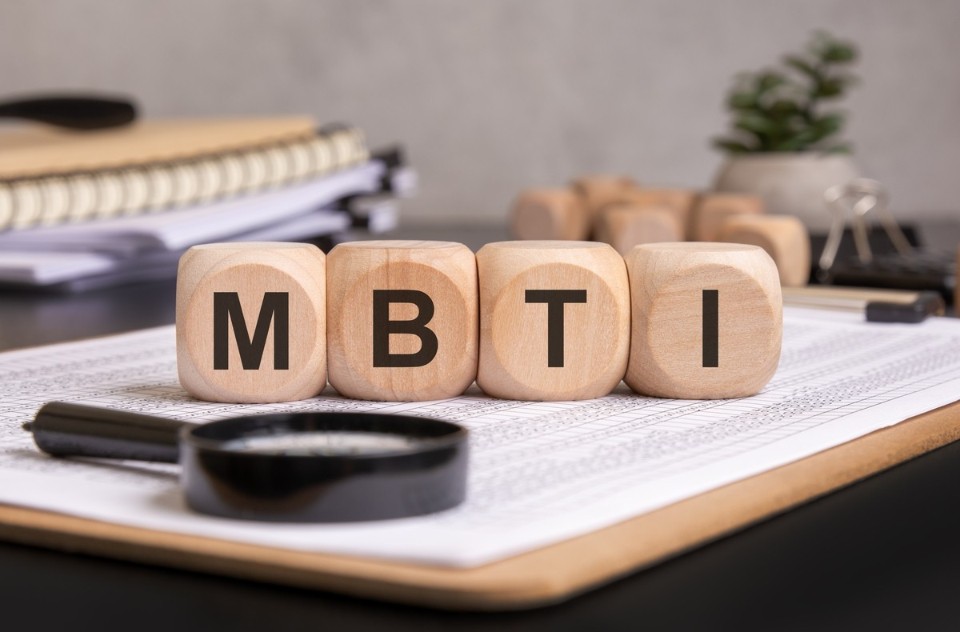


Comments